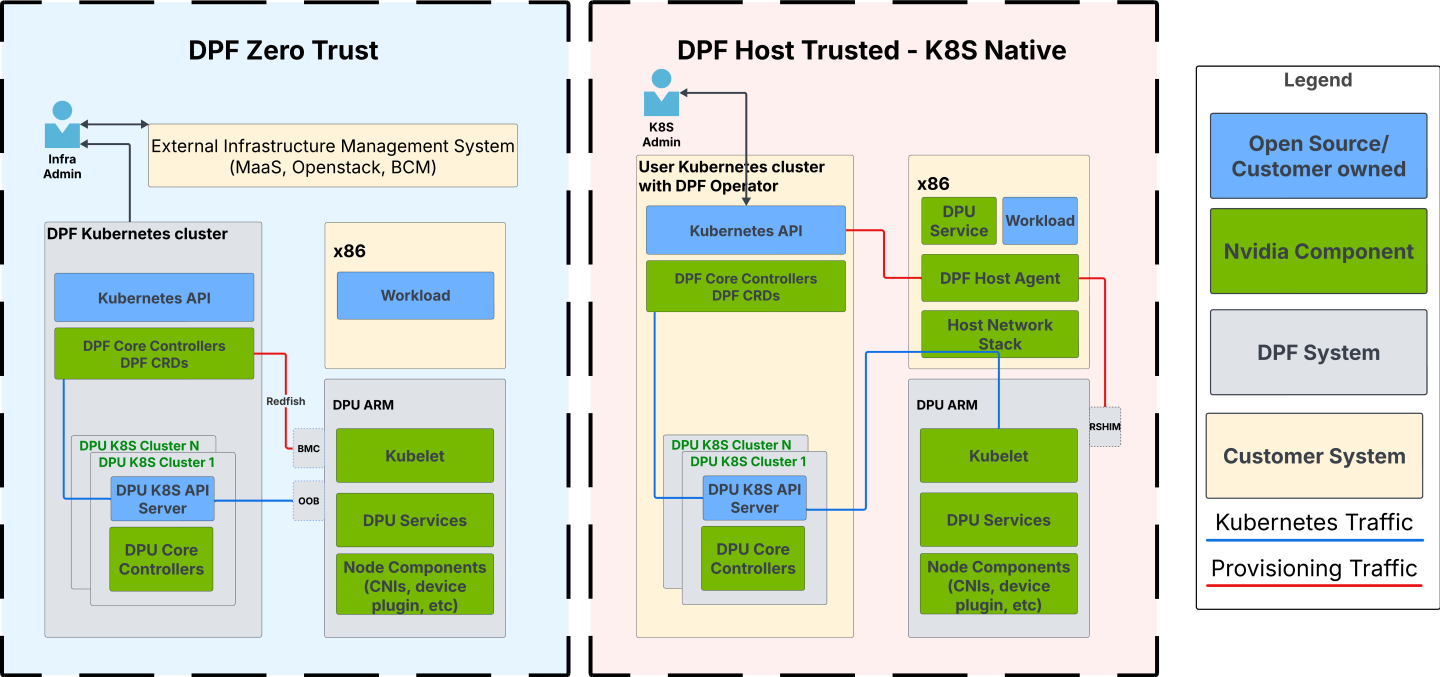User Guides
These guides walk you through deploying and configuring the DOCA Platform Foundation (DPF) for different scenarios.
Deployment Scenarios
We have two primary deployment scenarios for DPF - Zero Trust and Host Trusted. Each scenario has its own deployment guide and configuration details.
In the below diagram, you can see the differences between the two deployment modes:

Zero Trust Deployment
In Zero Trust deployments, the DPU acts as a host accelerator card managed by DPF via BMC and Redfish. Your host machines stay outside the DPF management cluster, while the DPU provides secure acceleration for those hosts.
This approach gives you:
DPU managed through DPF via BMC and Redfish
Secure isolation between management plane and host systems
DPU services managed via Kubernetes APIs within the DPF cluster
Ideal for isolation use cases: HBN, VPC, SNAP isolated storage, and Argus
Host Trusted Deployment
In Host Trusted deployments, the DPU acts as a host accelerator card managed by the host. Your host machines function as worker nodes within the DPF management cluster, with the DPU serving as an integrated acceleration resource.
This approach gives you:
Host-managed DPU
Standard Kubernetes APIs for both host workloads and DPU services
End-to-end Kubernetes-native experience
Support for HBN, OVN Kubernetes, and HBN+OVN Kubernetes use cases
DPU configuration through DOCA Management Service (DMS)